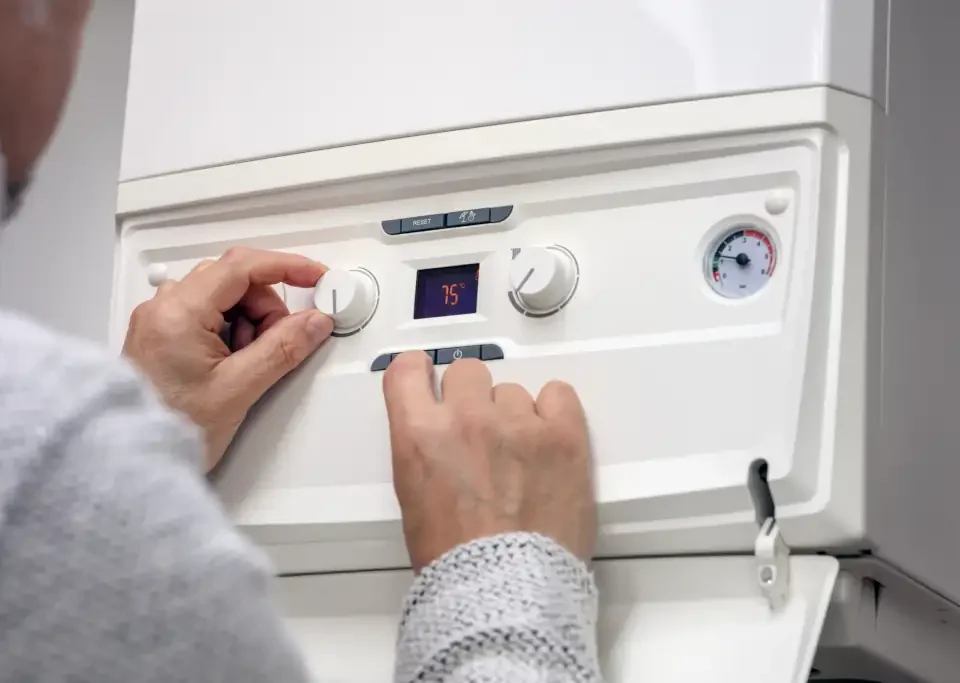- Your Complete Home Service Under One Roof
- 01395 571000
Methods to Help You Save Money on Your Heating Bill This Winter

Winter can bring welcome cosy evenings, but for many UK households it also brings higher energy bills as heating systems work harder to keep homes warm and comfortable. With energy costs still a concern across the country, finding ways to save money on your heating bill this winter has never been more important. In this guide, we’ll walk you through practical steps to improve efficiency, cut unnecessary costs and get the most out of your home heating — all backed by reliable advice from professionals.
Whether you’re looking for tips on thermostat settings or ways to keep heat in your home for longer, investing in professional boiler servicing and heating support can help ensure your system is running as efficiently as possible. From addressing common heating issues before they escalate to knowing when to call in expert plumbing services for homes and businesses, proactive maintenance can make a real difference to comfort and cost.
And if you’re wondering what real customers think about working with Fords, read real customer reviews and feedback to see how our team has helped homeowners improve heating efficiency, fix plumbing problems and feel confident in their energy decisions.
The Importance of Heating Efficiency
Heating costs can rise dramatically during winter, as we use our systems more frequently and for longer periods. On top of this, the volatility of energy prices adds to the financial burden. However, with a few smart adjustments and efficient practices, it is possible to reduce heating expenses significantly. Let’s explore how you can achieve this.
1. Optimise Your Thermostat Settings
Adjusting Temperature Settings
One of the easiest ways to save money on heating bills is by adjusting your thermostat. The ideal temperature for most homes during the day is between 18–20°C, which is comfortable yet energy-efficient. At night or when you’re away, lowering the temperature by even a few degrees can offer substantial savings without affecting your comfort too much.
Using Programmable Thermostats
Programmable thermostats take the guesswork out of manual adjustments, automatically reducing temperatures when you’re not at home or when you’re asleep. Look for models with Wi-Fi compatibility or energy-saving modes for additional convenience. By setting your heating system to work according to your schedule, you’ll optimise usage and see considerable heating bill savings.
2. Insulate Your Home
Identify Areas Needing Insulation
Heat can escape through poorly insulated areas such as attics, basements, doors, windows, and wall cavities, causing your heating system to work overtime and consume more energy. Sealing gaps, cracks, and drafts with weather stripping or caulking is an affordable and effective way to minimise heat loss and reduce heating expenses.
Types of Insulation
Each area of your home may require different types of insulation. For example:
- Fibreglass insulation: Affordable and great for attics and larger spaces.
- Foam insulation: Works well in small or awkward spaces where fibreglass may not fit.
- Spray insulation: Ideal for sealing gaps and cracks, ensuring no heat is lost.
Each material offers unique benefits, so choose one that suits your specific needs to maximise efficiency and lower costs.
3. Regular Maintenance of Heating Systems
Importance of Routine Check-ups
Regularly maintaining your heating system helps ensure that it runs efficiently, reducing the chances of breakdowns throughout the winter months and preventing costly repairs. Having a professional inspect your system annually, preferably before winter begins, can help maintain optimal performance and reduce energy waste, further contributing to heating bill savings.
DIY Maintenance Tips
In addition to professional servicing, there are several DIY tasks you can do to keep your system running smoothly. Cleaning or replacing air filters ensures good airflow while checking and sealing duct leaks prevents heat from escaping. Simple visual inspections can also identify any obvious signs of wear or damage, helping you address them before they escalate.
4. Upgrade Your Heating System
When to Consider an Upgrade
If your heating system is old, inefficient, or frequently breaking down, it might be time to consider an upgrade. While the upfront costs of a new system can be high, the level of savings on energy bills over time can make it a worthwhile investment. Compare the cost of maintaining an outdated system with the benefits of a newer, more energy-efficient model to assess whether an upgrade is financially sound.
Energy-Efficient Heating Options
Modern heating systems, such as high-efficiency furnaces and heat pumps, lower energy use while producing the same level of heat. Look for appliances with “A” energy label ratings, as they meet high energy-efficiency standards and may qualify you for rebates or other incentives. Upgrading to such a system can lead to significant winter heating cost reduction over time.
5. Utilise Alternative Heating Sources
Supplemental Heating Options
Using space heaters to warm smaller areas of your home can be more cost-effective than heating the entire house, especially if you spend most of your time in a few rooms. Alternatively, a fireplace or wood stove can supplement your main heating system, providing additional warmth while reducing the load on your central heating.
Understanding Heating Sources
Electric and gas heating have different costs, efficiencies, and environmental impacts. Electric heaters are typically more expensive to run but are often more efficient in smaller spaces, while gas heating is generally more cost-effective for larger areas. Assessing your home’s needs and comparing these options can help you decide on the best heating solution for heating bill savings.
6. Optimise Home Layout and Usage
Creating a Heat-Conservative Layout
Your home’s layout can affect how efficiently heat is distributed. Make sure furniture isn’t blocking radiators or vents, allowing heat to circulate freely throughout the room. Additionally, using thick curtains or blinds to cover windows at night helps retain warmth, reducing the amount of heat lost through glass.
Daily Habits to Reduce Heating Needs
Simple lifestyle changes can also help minimise your reliance on your heating system. Wearing warm clothing indoors, using blankets, and turning down the heat when cooking or using heat-generating appliances are all effective ways to reduce heating expenses.
7. Consider Energy Assistance Programmes
Exploring Available Resources
If upgrading your heating system or improving your home’s insulation is financially challenging, consider exploring government energy efficiency programmes and assistance schemes from local utility companies. These programmes often provide grants or rebates for energy-efficient home improvements, which can lead to long-term heating bill savings.
How to Apply for Assistance
To apply for these programmes, research available resources in your area, check the eligibility requirements and gather the necessary documentation. Many programmes offer free energy assessments to help you determine the best steps for improving your home’s efficiency.
Keep Your Winter Heating Bills Low With Fords South West Ltd
Reducing your heating bill this winter is not only possible but simple with the right approach. At Fords South West Ltd, we are here to help you maximise your energy efficiency with expert advice and services tailored to your home. Whether it’s upgrading your heating system, installing insulation, or exploring renewable heating solutions like heat pumps, our team of highly skilled and committed engineers is dedicated to providing cost-effective and sustainable solutions. With over 100 years of serving Devon, Somerset, and beyond, we’re ready to help you stay warm while reducing your energy costs. Contact us today to explore how we can assist you in making your home more energy efficient this winter.
FAQs
How much money can I save by lowering my thermostat?
Lowering your thermostat by even 1°C can reduce your heating bill by up to 10%.
What are the advantages of using a programmable thermostat?
Programmable thermostats can automatically adjust temperatures to suit your schedule, preventing energy waste and helping you save money.
How often should I service my heating system?
An annual service is recommended to keep your heating system running as efficiently as possible and to prevent unexpected breakdowns.
What types of insulation are most effective?
Fibreglass is great for attics, foam for smaller spaces, and spray insulation is excellent for sealing gaps and cracks.
Are space heaters safe for long-term use?
Space heaters are generally safe, but it’s important to follow manufacturer guidelines, avoid leaving them unattended, and keep them away from flammable materials.



